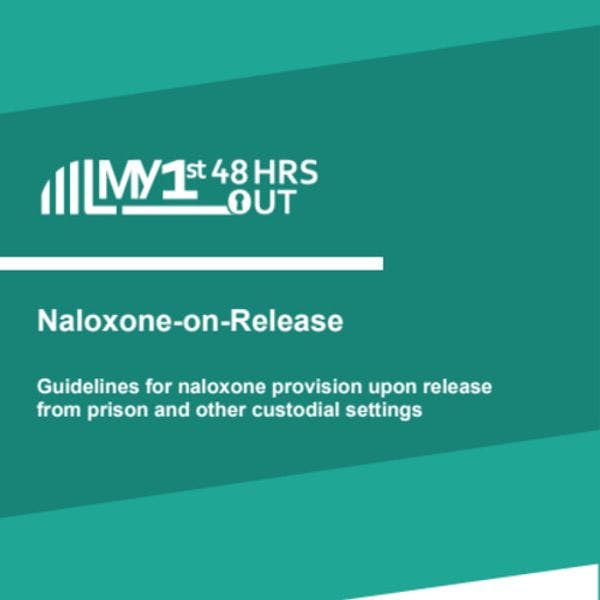Frankfurt University of Applied Sciences
Naloxone-on-Release: Guidelines for naloxone provision upon release from prison and other custodial settings
By Frankfurt University of Applied Sciences
This work is a product of the project “My first 48 hours out – comprehensive approaches to pre and post prison release interventions for drug users in the criminal justice system”. The project, led by the Frankfurt University of Applied Sciences/Germany, received funding from the European Union for the period 2017-2018. It aims at addressing the gaps in the continuity of care for long-term drug users in prison and upon release, by supporting life-saving interventions for the prevention of overdoses and reduction of other risks related to drug use and for the establishment of a treatment path, which does not get interrupted upon release. For prisoners with a history of drug use, in particular opioid use, the risks related to drug use, in particular overdose and death are extremely high in the immediate period after release due to high rates of relapse and lower opioid tolerance. Much still needs to be done in order to ensure that people with a history of drug use are sufficiently cared for, when released from prisons. Harm reduction measures need to be in place for ex-prisoners to be able to readjust to freedom without relapsing back into problematic drug use and extreme risk of fatal overdose when released. The immediate time after release (“my first 48 hours out”) is a critical time for action, when the cooperation between prisons, healthcare providers and NGOs is key in ensuring continuity of care and where targeted interventions can save lives from overdose and build a path towards engagement into further treatment and rehabilitation for people who use drugs. Among other actions, the project wants to promote the implementation of life saving interventions in prison and upon release with specific reference to harm reduction, overdose prevention and the use of naloxone programmes. This is a key priority to be addressed by both policy makers and practitioners in European countries. The current work aims at producing hands-on guidelines for policy makers and practitioners from prison health services on how to promote, initiate and manage interventions related to overdose prevention through naloxone programmes and related training and capacity building.
